Kate Bevan: Author killed on farm was 'force of nature'
- Published
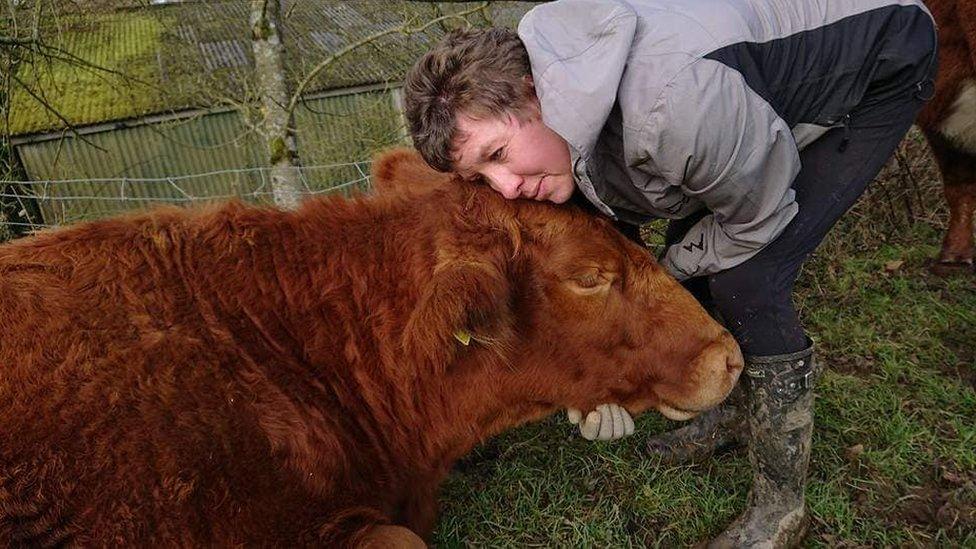
Kate Bevan's friend Alison Phelps-Beaumont said she wants "the world to see how special she was"
An author killed on a farm by a man with schizophrenia has been described as a "force of nature" by her husband.
Kate Bevan, 53, was found dead in a bull pen at Combe Farm in Gittisham, near Honiton in Devon, on 3 January.
Her death was initially treated as an accident but when investigations revealed she had been strangled, suspicion fell on Italian farm worker Luigi Palmas.
Palmas, 27, has been sentenced to an indefinite hospital order.
Exeter Crown Court heard he admitted manslaughter by diminished responsibility and prosecutors accepted he was "in the grip" of schizophrenia at the time.
Michael Bevan, 67, said his wife of more than 30 years excelled at everything she did.
The couple settled in Devon in 2005 and Mrs Bevan, who previously worked as a senior manager for jeweller F Hinds, became a veterinary pharmacist.
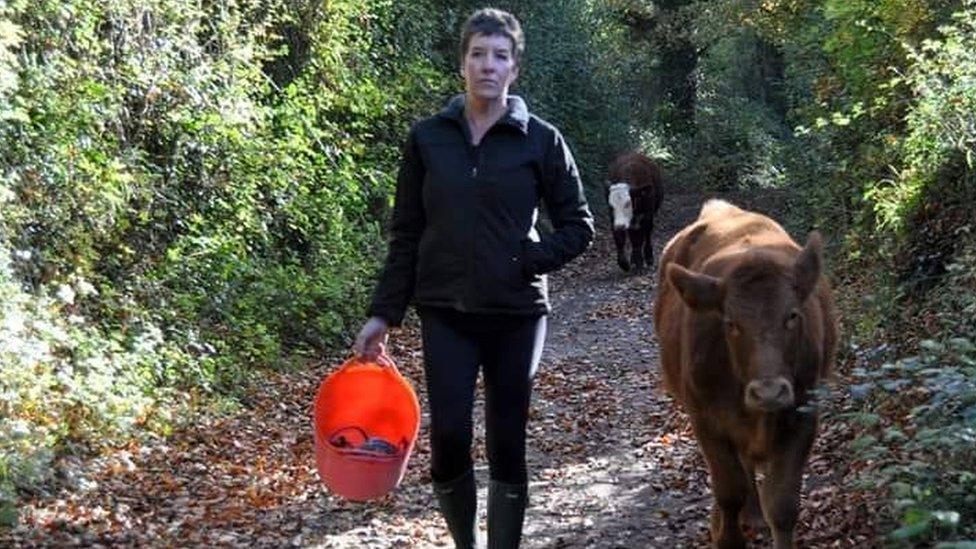
Mrs Phelps-Beaumont said her friend fell in love with cows after working with them at Combe Farm
"She was full of life, full of love, had a big heart and when it came to work she could outwork anyone," said Mr Bevan.
"She was a force of nature. Whatever she did she gave 200% and she was so special and so lovely and she is going to be missed by so many people."
At the time of her death Mrs Bevan had been living on Combe Farm, where she became involved in helping with the animals after buying her foal Mattisse, but her husband said they were still "deeply in love" and had dinner together most days.
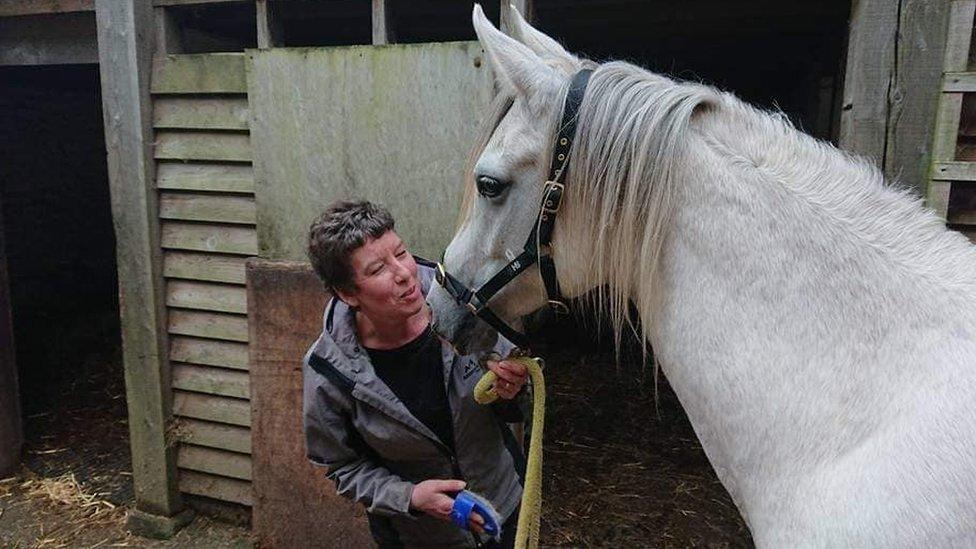
Mrs Bevan dreamed of having her own farm one day
Alison Phelps-Beaumont met and befriended Mrs Bevan on the farm, which she said both women fell in love with.
Mrs Bevan, whose dream was to have a farm or sanctuary for animals of her own, was involved in the care of the cattle on the farm, leading her to write her first book - Knowing Daisy - about her relationship with a calf and other animals.
Mrs Phelps-Beaumont said she met Palmas, one of an ever-changing number of volunteers at Combe Farm, for a few brief moments but said he did not strike her as dangerous, "just as a quiet young man who didn't speak very good English".
But Palmas, from Monza in Italy, had a history of random violence against strangers and his own family going back many years and caused by paranoid schizophrenia.
He had been symptom-free for a year before he moved to Devon to work at Combe Farm.
Once there, he had a series of minor disagreements with Mrs Bevan over the care of the cattle she loved so much but prosecutors said there was no reason for his attack, which took place between 18:30 and 20:00 GMT, after Palmas "waited in the shadows" on a winter evening before strangling her.
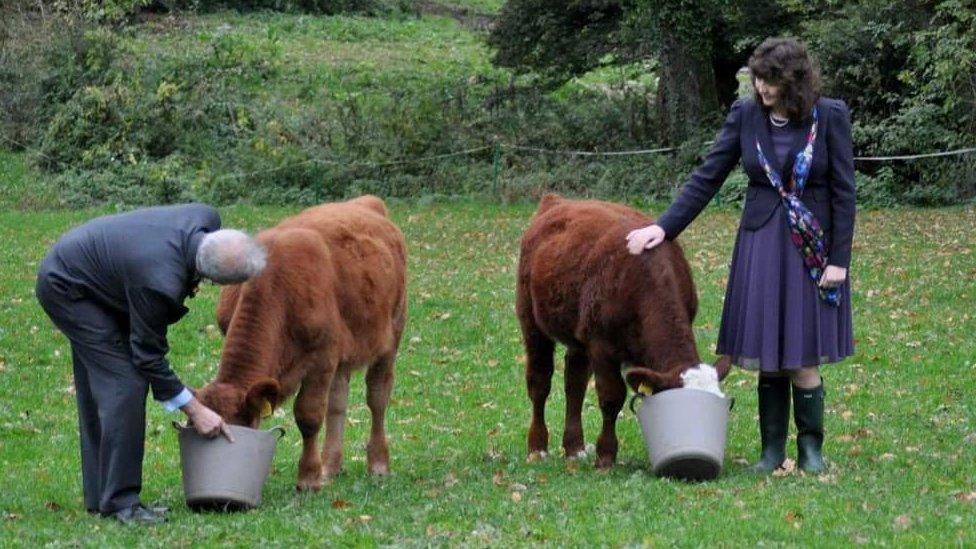
Mrs Phelps-Beaumont said she was trying to hold on to the moments she shared with her friend
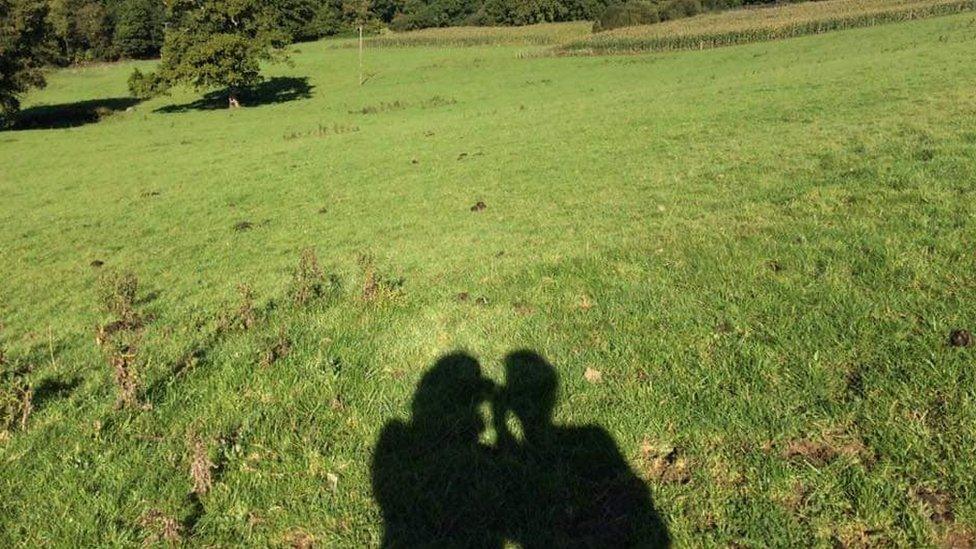
Mrs Bevan with her friend Mrs Phelps-Beaumont at one of their favourite spots at Combe Farm
Mrs Phelps-Beaumont said finding out her friend had been the victim of an attack rather than an accident was "extremely hard to process".
"You could probably understand if Kate had died from an animal but this is different," she said.
"I honestly believe it is a tragedy.
"This young man's life has changed forever and he has taken my Kate and for that I am desperately distressed."
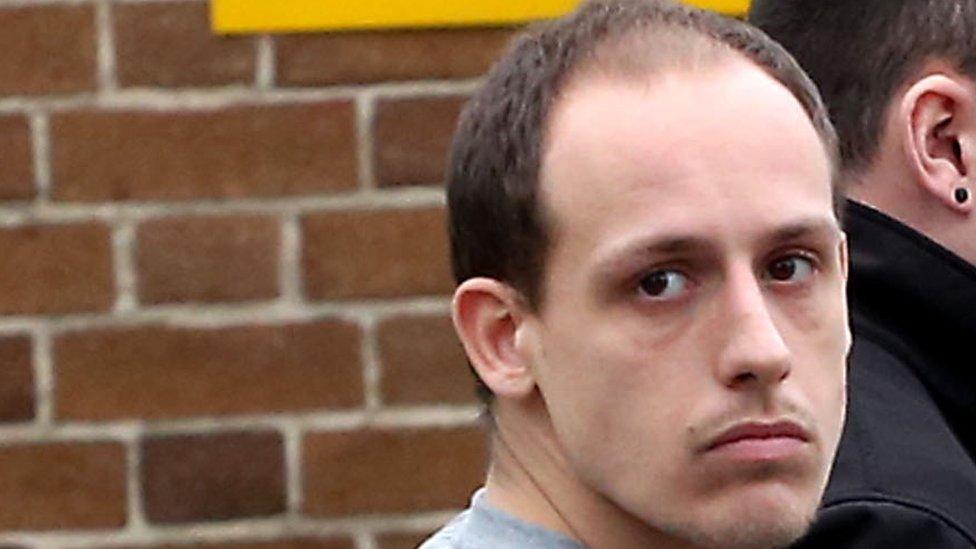
Luigi Palmas strangled Kate Bevan while in "the grip" of his schizophrenia
Mrs Phelps-Beaumont said she had never met anyone else like her "extraordinary" friend, while Mr Bevan described how his wife was "so clever".
"With her writing skills and the book she wrote, she had the talent to go ahead and do all sorts of things with books maybe and make a really good living from it," he said.
"Then she would have possibly been able to realise her dream [of having her own farm].
"Nothing was about her, it was all about the animals and that is the person she was.
"I hope her memory will never get lost."
- Published13 November 2020
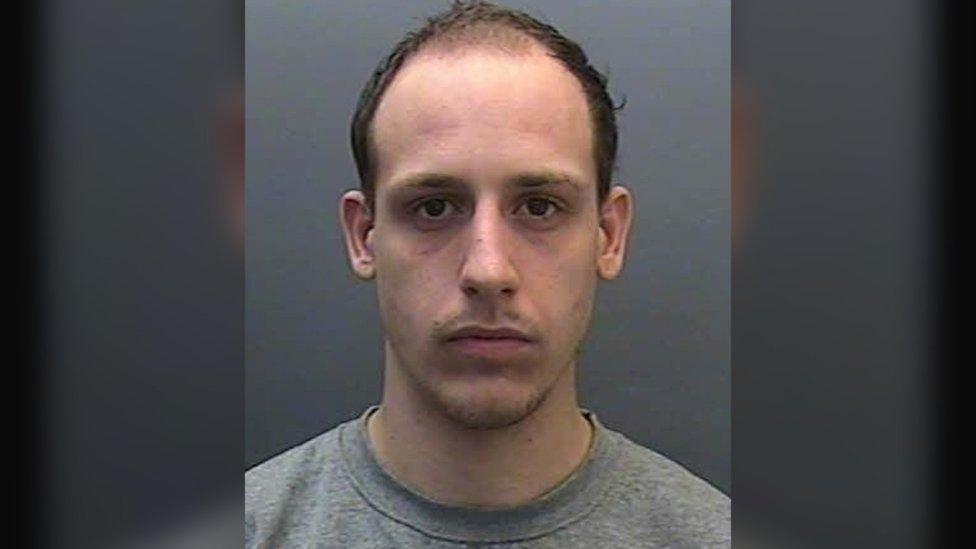
- Published29 October 2020

- Published22 January 2020
